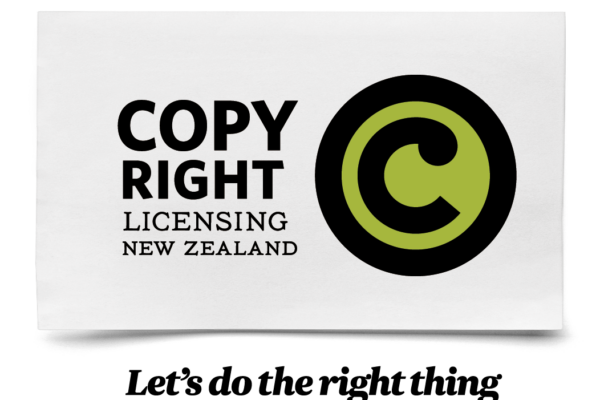
French citizens wait to enter a shop in Chartres under lockdown restrictions on April 4. Image – iStockphoto: Razvan
‘When We Need a Strong Legal Framework’
The springtime march of international issue observance days—as we wrote in our piece on the COVID-19 commentary from WIPO’s Francis Gurry—unfortunately starts to work against itself as April’s end nears. So many statements are issued by so many organizations on such dates that some good messaging can be lost, each proclamation starting to sound like the one before and after it. World Intellectual Property Day fell on Sunday (April 26) and thus was observed by statement writers today (April 27). It was overshadowed, of course, by the coronavirus pandemic.
World Intellectual Property Day fell on Sunday (April 26) and thus was observed by statement writers today (April 27). It was overshadowed, of course, by the coronavirus pandemic.
The 2020 focal phrase was to have been “Innovate for a Green Future.” But much of that perfectly decent sentiment has been set aside, as we see in the statement issued by the International Publishers Association (IPA), which based in Geneva—as is World IP Day’s home agency, WIPO.
If anything, Earth scientists and climate crisis activists have siezed on the various beneficial effects of an industrialized world slowed to a standstill by the necessary social-distancing and economy-crushing lockdowns in response to the contagion.
“Attempts to erode the well-established operation of copyright law under the pretext of emergency access are opportunistic and intolerable.”José Borghino, IPA
Cleaner air and water, bluer skies, and an unusual number of animals turning up in comparatively quiet urban settings are being reported in many parts of the world. Coyotes have been spotted in San Francisco. Great Orme Kashmiri goats have been caught on video, romping through the seaside Welsh town of Llandudno. Elk were photographed gathering on a Colorado golf course.
But the much darker grip of the pandemic—which by this evening has seen 210,842 deaths and 3,037,605 confirmed cases, according to
the Johns Hopkins Coronavirus Resource Center tallies at 8:31 p.m. ET (0031 GMT Tuesday)—has the hold that it must have on the actual attention paid to World Intellectual Property Day this year, and the IPA’s statement is appropriately geared to the pandemic.
While WIPO’s work covers not only copyright but also trademarks and patents, the IPA’s attention of course is mainly on copyright.
‘To Play This Vital Role in Society’
Two prepared quotes from professionals familiar to Publishing Perspectives readers are included with the 69-nation association’s basic text, and they’re worth highlighting.

Jessica Sänger
Jessica Sänger, the Börsenverein des Deutschen Buchhandels’ director of European and international affairs, is also the current chair of the IPA’s copyright committee.
“This crisis,” Sänger is quoted saying, “has demonstrated just how much value publishers bring to so many aspects of our lives.
“It’s the global copyright framework—and exclusive rights in particular—that enable publishers to play this vital role in society.
“This World Intellectual Property Day, we should celebrate copyright law and all the diverse literature, vital research, and educational resources that it has helped create.”

José Borghino
And IPA’s secretary-general, José Borghino, sounds a warning about how some may take advantage of the public health emergency.
“Attempts to erode the well-established operation of copyright law,” he says, “under the pretext of emergency access to research, educational materials, and other published materials are opportunistic and intolerable.
“More than ever, society needs the endeavors of authors and publishers to be valued and their copyrights respected. At IPA, we stand ready to support the worldwide publishing industry and all who work to maintain effective copyright protection.”
That’s a particularly cogent point to those monitoring the outcry around the Internet Archive’s declaration of a “National Emergency Library,” termed by the Association of American Publishers’ president and CEO Maria A. Pallante, an “aggressive, unlawful, and opportunistic attack on the rights of authors and publishers in the midst of the novel coronavirus pandemic.”
The organization’s overall statement talks of the IPA’s pride in “highlighting the time-tested importance of the global copyright framework,” which the association says “has enabled publishers all around the world to invest in authors and serve the public interest by making literature, peer-reviewed research, educational platforms, and learning solutions available to so many consumers, students, scientists, educators and other readers.”
In more from the statement:
“The global copyright framework is and always has been the foundation of the publishing industry.
“These treaties and national laws—based on a combination of enforceable exclusive rights and carefully calibrated exceptions and limitations—incentivize authors, publishers and other copyright owners to create, invest in, and make available to the public original and valuable works of authorship. Through these works, publishers drive inspiration, entertainment, education, and both local and global economies.
“As people around the world adapt to home-working and home-schooling, and governments seek reliable scientific data on which to base policies to protect their citizens, the publishing community has stepped up as never before to support governments, teachers, parents and the public.
“While physical bookshops remain closed in most countries, the digital marketplace has become more important than ever, with many booksellers offering online purchases and delivery of physical books as well as a wide variety of ebooks and audiobooks. … The COVID-19 pandemic does not make copyright protection less viable or infringement less unlawful.
“On the contrary, this is a time when we need authors, publishers, and a strong legal framework more than ever.”




